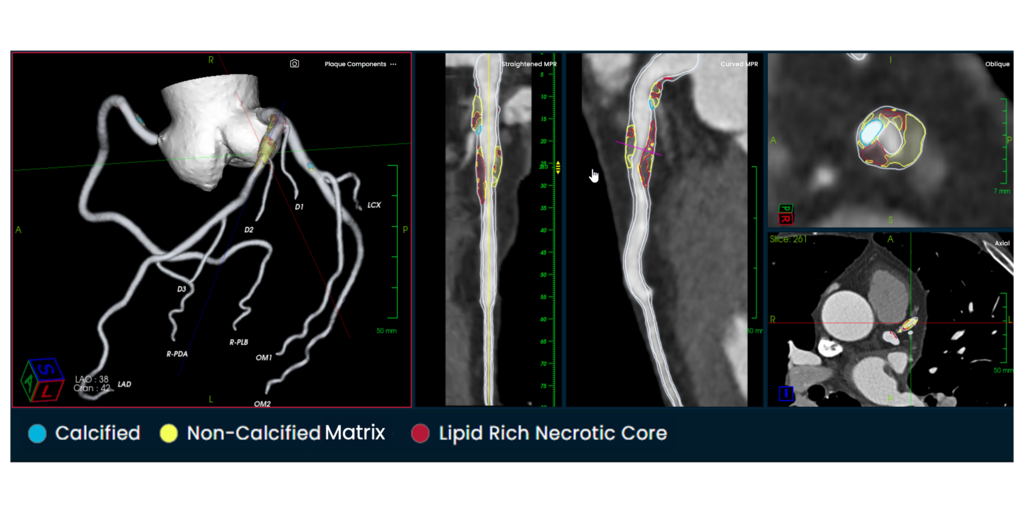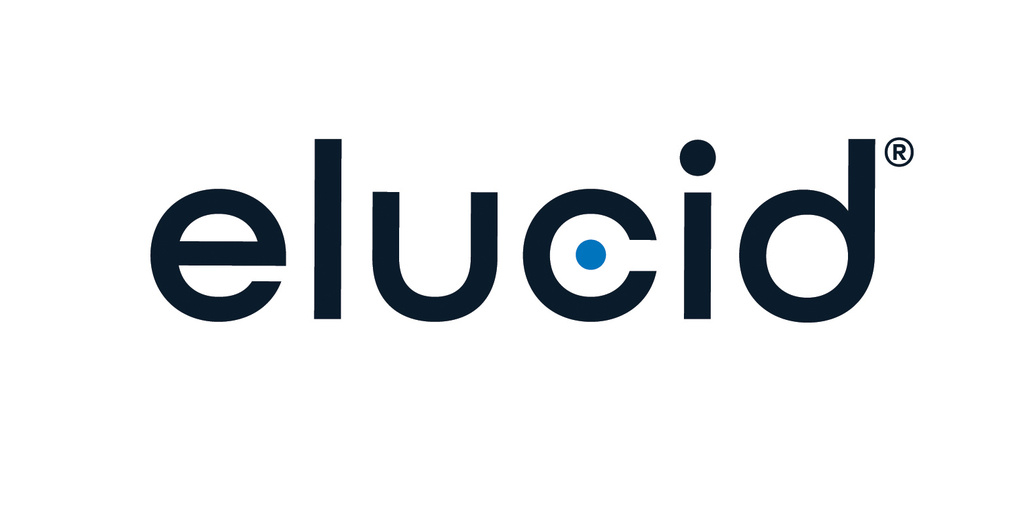First and Only Software Validated on Ground-Truth Histology, the Gold Standard for Plaque Characterization
BOSTON–(BUSINESS WIRE)–Elucid has announced it has received 510(k) clearance from the U.S. Food and Drug Administration (FDA) for its PlaqueIQ™ imaging analysis software to help physicians diagnose cardiovascular disease (CVD). PlaqueIQ is the first FDA-cleared non-invasive software that can objectively quantify and classify plaque morphology based on ground-truth histology, the gold standard for characterization of plaques. PlaqueIQ is designed to give physicians new, clinically validated information to help stratify patients and inform patient-specific treatment pathways.
Cardiovascular disease is the most common cause of death and disability globally, largely driven by myocardial infarction (MI) and ischemic stroke caused by atherosclerosis (plaque build-up and rupture in the arteries).1 While physicians look at many risk factors to evaluate patient risk, such as age, diet, and lifestyle, the strongest predictor of future events is the amount and type of plaque patients have in their arteries.2 About half of Americans between ages 45 and 84 have atherosclerosis and don’t know it.3
“The fact that low-risk, asymptomatic patients represent such a large portion of the population means that even a small fraction of them account for a substantial number of myocardial infarctions,” said Dr. Amir Ahmadi, Clinical Associate Professor of Medicine and Cardiology, Icahn School of Medicine at Mount Sinai, and co-director of the Cardiac Intensive Care Unit at Mount Sinai Fuster Heart Hospital at Morningside.
“It’s time to shift our focus from merely estimating risk and treating risk of MI to directly visualizing and treating the disease itself by looking at the coronary arteries,” continued Dr. Ahmadi. “I believe that PlaqueIQ will enable physicians to better ‘see’ the disease—specifically plaque quantity and type—so that we can treat patients with greater precision and in personalized manner, improve their quality of life, and ultimately prevent MI and stroke more effectively.”
PlaqueIQ utilizes first-line diagnostic CCTA and develops comprehensive, interactive reports to help physicians virtually “see” plaque at the vessel level. With its basis in histology, the software is uniquely able to non-invasively quantify and characterize non-calcified plaque and its components such as lipid-rich necrotic core (LRNC), giving potential insights into high-risk plaques that are key drivers of risk of heart attack and stroke.3 In addition, use of the software has the potential to enable earlier identification of higher-risk plaque before presence of symptoms or major adverse events.
“PlaqueIQ’s underpinnings in histology is a novel approach to the field of non-invasive coronary plaque classification,” said Dr. Mark Rabbat, professor of Medicine and Radiology, director of Cardiac CT, and director of Structural Heart Disease Interventional Imaging in the Division of Cardiology at Loyola University Chicago. “Armed with additional data on vulnerable plaque components, we can make more informed treatment decisions on drug therapy selection or the need to send the patient to the cath lab. I believe plaque quantification has the potential to greatly improve outcomes for patients while providing tremendous savings to the healthcare system.”
Physicians simply send patient images to Elucid with a single mouse click. Then Elucid applies PlaqueIQ’s image-restoration algorithms to the file to mitigate motion and calcium blooming artifacts. Specially trained analysts segment the data creating a 3D model of the patient’s coronary arteries. The software then identifies, classifies and quantifies tissue structure and composition.
“Elucid’s mission is to commercialize proven technologies that can make a meaningful difference in the prevalence of heart attack and stroke, and the FDA clearance of PlaqueIQ is a huge step forward towards that goal,” Kelly Huang, CEO of Elucid. “We know that plaque is the key contributor to these devastating events, and, specifically, high-risk plaque components, but you can’t treat what you can’t see. With PlaqueIQ, physicians can gain new and insightful histology-based information to help better understand plaque composition and get ahead of the disease.”
Elucid is currently performing beta testing on PlaqueIQ and anticipates making the software available for limited release later in Q4 2024. The company is also pursuing an indication for non-invasive measurement of fractional flow reserve (FFRCT™), uniquely derived from its PlaqueIQ technology, to measure coronary blockages and the extent of ischemia.
About Elucid
Elucid is a Boston-based AI medical technology company dedicated to developing technology designed to provide physicians with a more precise view of atherosclerosis (coronary plaque buildup), the root cause of cardiovascular disease. The company’s PlaqueIQ™ product is designed to help physicians prioritize and personalize treatment based on actual disease, rather than population-based risk of disease. PlaqueIQ is the only FDA-cleared computed tomography angiography (CTA) algorithm that objectively quantifies plaque morphology validated against ground truth histology, the gold standard for characterization of plaque, as indicated by renowned pathologists. PlaqueIQ equips physicians with critical information regarding the type and amount of plaque in arteries that can lead to heart attack and stroke. Elucid is also pursuing an indication for FFRCT™, derived from its plaque algorithm, to help identify coronary blockages and the extent of ischemia non-invasively. For more information, visit elucid.com.
___________________________
1 World Health Organization (WHO), Cardiovascular diseases (CVDs) fact sheet. 11 June 2021; Available from: https://www.who.int/en/news-room/fact-sheets/detail/cardiovascular-diseases-(cvds).
2 Pahwa R, Jialal I. Atherosclerosis. [Updated 2023 Aug 8]. In: StatPearls [Internet]. Treasure Island (FL): StatPearls Publishing; 2020 Jan-. Available from: https://www.ncbi.nlm.nih.gov/books/NBK507799/ (accessed 03.17.2023)
3 A. Hafiane, Vulnerable plaque, characteristics, detection, and potential therapies, J. Cardiovasc. Dev. Dis. 6 (3) (2019).
Contacts
Media Contact:
Sam Choinski
Pazanga Health Communications
(860) 301-5058
schoinski@pazangahealth.com





